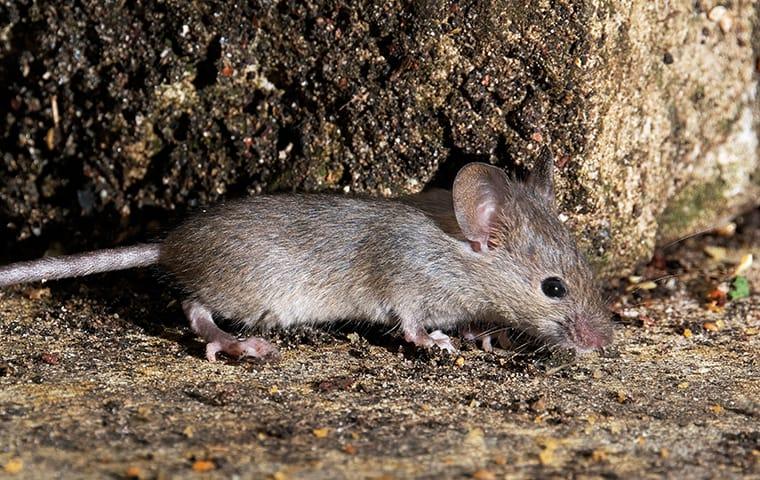What are rodents?
Rodents are a type of mammal and make up 1/4 of all mammal species. With differing living requirements, large populations, unique behaviors, and varying sizes, all species of rodents are tough pests to keep out of homes and other structures. All rodents, no matter the species, have continuously growing front incisors. Rodents are constantly chewing on objects to sharpen these teeth and prevent them from overgrowing. Their constant chewing will cause a lot of damage in homes, businesses, and yards. Additionally, these destructive habits mean rodents are also significant pests to the agriculture industry.

Some of the most common rodents living throughout the world are mice and rats. Mice, rats, and other rodents play an important environmental role when living in nature away from people; they help to maintain the health of grasslands and forested areas, and they serve as a major source of food for many predators.
Are rodents dangerous?
Rodents cause costly, dangerous, and extensive problems for homeowners. Rodents will not hesitate to chew through boxes, drywall, flooring, furniture, insulation, pipes, wires, and more. Their chewing habits can even trigger fires and cause water damage. Additionally, these animals contaminate food, as well as food prep areas and other surfaces of your property with bacteria and pathogens that can cause hantavirus, rat-bite fever, salmonella, and more. Rodents can also spread diseases to humans indirectly through fleas, mites, or ticks that they introduce onto your property or into your home or business.
Why do I have a rodent problem?
You can identify mice and rats as commensal rodents because of the close relationship they've developed with people. As our habitats have merged, they have come to rely on us somewhat for their food and shelter needs. Residential yards or properties with ample access to food sources are highly attractive to them. Animal feed, compost bins, grill areas, and trash cans act as all-you-can-eat buffets for rodents; birdbaths, clogged gutters, pet water bowls, and low-lying areas in your yard all provide ample sources of water.
Where will I find rodents?
Rodents are prey animals, so they prefer to live and nest in hidden, secluded areas. Outdoor nesting spots include fields, rock crevices, tall grasses, fallen trees, and tree stumps. Places near homes where rodents choose to nest include garden areas, under decks, and in garages and other outbuildings. Rodents are common home invaders, finding their way inside while foraging for food or in order to escape harsh weather. Indoors, they nest behind large appliances, behind walls, and in attics, basements, and crawlspaces.
How do I get rid of rodents?
For home and business owners who want to eliminate rodents from their property, partnering with a professional is the best way to be successful. At Jury Pest Services, we provide exceptional pest solving strategies that will eliminate rodents and prevent their return. Our green pest control solutions protect the environment, while still being effective against our area’s toughest pests. Serving Richmond County in Georgia and Aiken County in South Carolina, Jury Pest Services is committed to our customers and to providing trustworthy pest control services. We also provide our professional services to homes and businesses in Columbia County, GA, Edgefield County, SC, Barnwell County, SC, and beyond. To learn more about our rodent control services, contact Jury Pest Services today!
How can I prevent rodents in the future?
In addition to the professional solutions you'll find at Jury Pest Services, use the following tips to help prevent problems with rodents:
-
Get rid of easy access to food sources by keeping tight-fitting lids on all outdoor trash cans and compost bins.
-
Place caps on chimneys and mesh covers over vents leading inside.
-
Remove bird feeders from your property.
-
Sealing cracks in the foundation, exterior walls, and roofline.
-
Cut back trees limbs and overgrown vegetation from the outside of your home or business.
-
Eliminate nesting spots by removing fallen trees, trees stumps, piles of wood, and other debris from your yard.
Schedule An Inspection Today!
Complete the form below to request an inspection.
 Reviews
Reviews